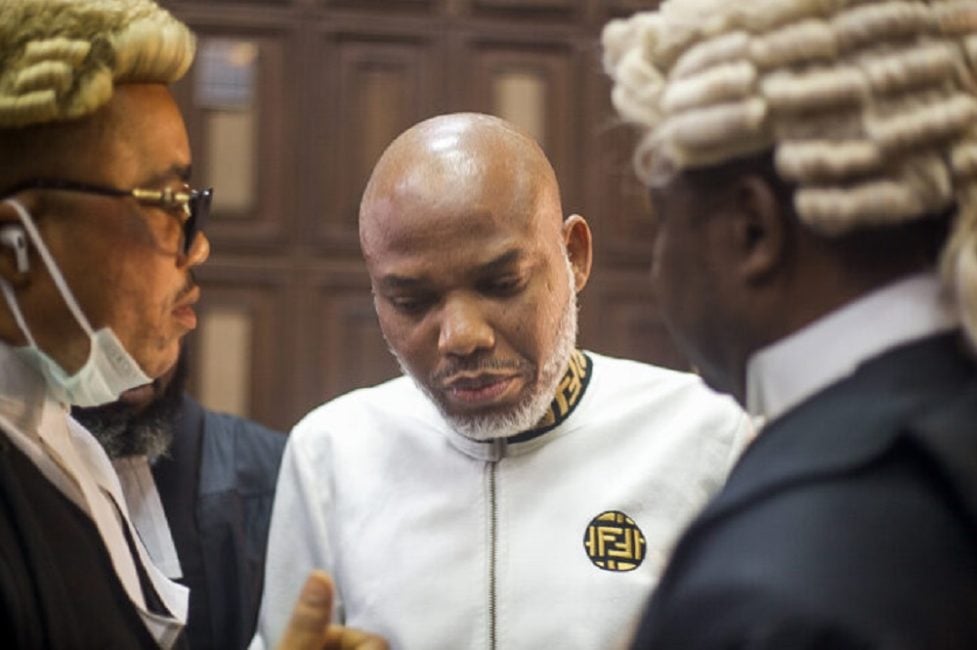The family of detained Indigenous People of Biafra (IPOB) separatist leader, Nnamdi Kanu, has lost a legal challenge against the British government in a London court regarding his detention in Nigeria.
Kanu’s brother, Kingsley Kanu, had brought a judicial review against Britain’s Foreign Office over its alleged refusal to acknowledge that Nnamdi Kanu, who holds Nigerian and British citizenship, was the victim of extraordinary rendition from Kenya to Nigeria in June 2021.
Kingsley Kanu’s lawyers argued that the Foreign Office should reach a judgment about whether his brother was the victim of extraordinary rendition so it could properly assess how to assist the family.
Reuters reported that Judge Jonathan Swift dismissed the case on Thursday, saying the Foreign Office’s decision not to express a firm view about Nnamdi Kanu’s treatment, either privately or publicly, was a matter for the government.
Atiku will grant Nnamdi Kanu unconditional release – Campaign DG
18 yrs after, Oghenekaro emerges Nigeria’s scrabble champion again
However, the judge added that the British government’s approach will also now be informed by a ruling from Nigeria’s Court of Appeal on October 13 that found that Nnamdi Kanu had been unlawfully abducted and sent to Nigeria.
The Court of Appeal also dropped seven charges against Nnamdi Kanu, who has remained in detention pending an appeal against that decision by the Nigerian government.
Britain’s Foreign Office and Kingsley Kanu’s lawyers did not immediately respond to a request for comment.
Kanu founded the now outlawed Indigenous People of Biafra (IPOB) to press for the secession of the southeastern part of the country.
In late June 2021, Kanu was extradited to Nigeria to face trial, after he was arrested outside the country.
He is facing charges bordering on treasonable felony instituted against him at the Federal High Court, Abuja in response to years of the campaign for the independent Republic of Biafra through IPOB.
He was granted bail in April 2017 for health reasons but jumped the bail after flouting some of the conditions given to him by the court.

 Join Daily Trust WhatsApp Community For Quick Access To News and Happenings Around You.
Join Daily Trust WhatsApp Community For Quick Access To News and Happenings Around You.


